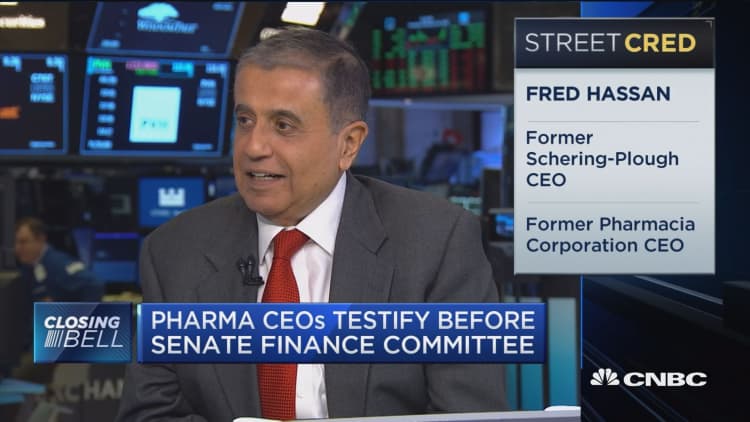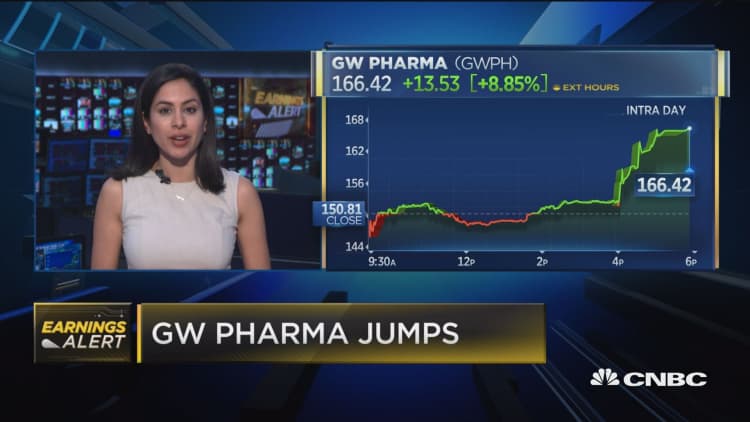A Senate panel grilled AbbVie Chairman and CEO Richard Gonzalez about tying executive bonuses to sales of the U.S. drugmaker's blockbuster arthritis treatment Humira.
Humira's $18.3 billion in 2017 sales — which rose 14.6 percent from the previous year and accounted for about 65 percent of the company's $28.1 billion in revenue — were a major factor in calculating the compensation for AbbVie's top executives last year, according to the company's most recent compensation data.
Humira sales are one of the company's four main financial targets — along with net revenues, operating margin and return on assets — that accounted for 60 percent of Gonzalez's short-term incentive plan. The plan pays out a cash award for each of the top five executives equal to up to 200 percent of their base salary, depending on if they meet the targets and other performance measures.

The company hit its internal target for Humira sales last year, helping its top five executives to nearly max out their cash bonuses with a payout equal to 175 percent of their annual base pay, the company said.
"In 2017 all financial and strategic goals were materially achieved, resulting in performance scores between 99% and 100% of target," the company said.
Gonzalez, 64, made a total of $22.6 million for his performance in 2017, $4.3 million of which was his cash bonus. The rest of his compensation was base salary and a mix of stock, restricted shares and options.
"This strikes me as problematic," Sen. Ron Wyden, D-Ore., said in questioning the CEO at a hearing on prescription drug costs before the Senate Finance Committee on Tuesday. "Would you make a smaller bonus if you dropped the price of Humira?"
In response, Gonzalez said, "Humira was one element of a set of financial factors that were evaluated as part of my compensation. It's obviously a very significant product for us. So it is clear it would be a part of the evaluation."
Wyden snapped back with, "I'd like that in writing. It looks to me you'd be making a smaller bonus if you dropped the price of Humira. I'd like that in writing within 10 days."
Since 2014, AbbVie has nearly doubled the price of its top-selling drug Humira, which is used to treat diseases including arthritis, plaque psoriasis and Crohn's, according to a review of data provided by Rx Savings Solutions. The drug now carries a list price of more than $60,000 per year.
AbbVie has been aggressive in keeping cheaper copycat versions of its drug off the U.S. market. The company is not expected to face biosimilar competition in the U.S. until 2023.
The drug's list price and patent faced the brunt of the heat from senators at the hearing. At one point, Wyden likened AbbVie's patent practices to Gollum, the slimy "Lord of the Rings" character who coveted the ring of power.
"Can the patients opt for a less expensive alternative? They can't, because AbbVie protects the exclusivity of Humira like Gollum with his ring. Thick cobwebs of patents and shadowy deals with drugmakers, all of them are in place to keep the cash flowing," Wyden said.
Gonzalez argued the drug has so many patents because it's used to treat several different ailments.



